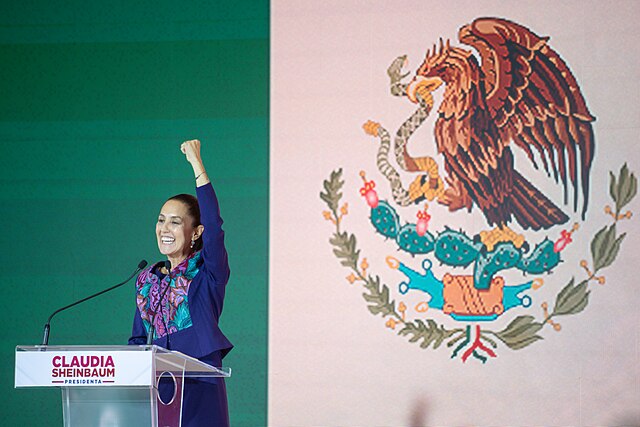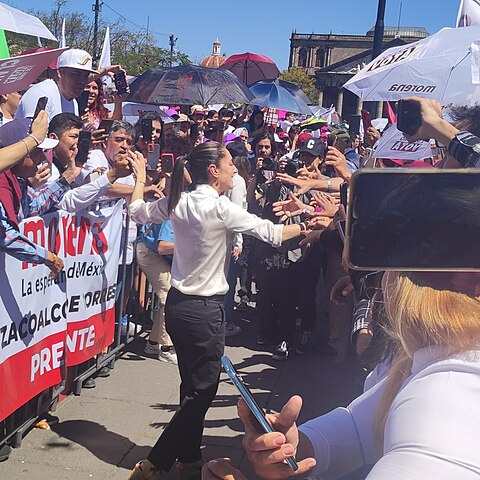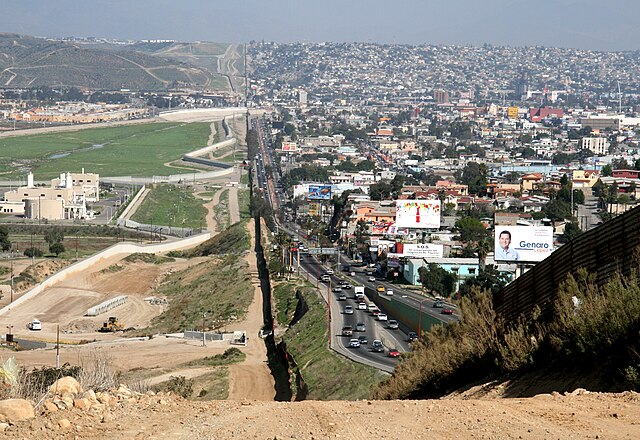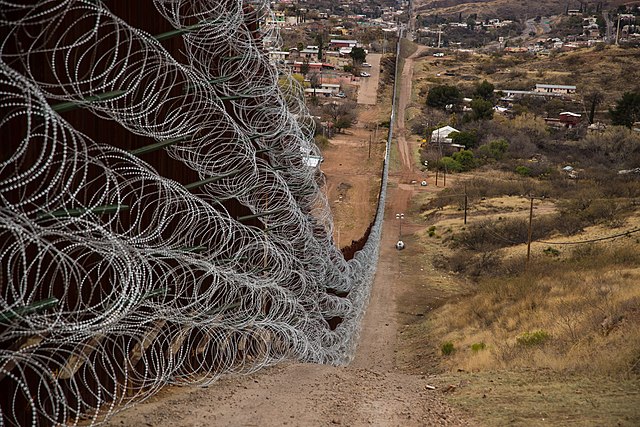President-Elect Offers Chance for Improved U.S.-Mexican Relations

By EneasMx – Own work, CC BY 4.0, https://commons.wikimedia.org/w/index.php?curid=149072981
The election of Claudia Sheinbaum as the first female president in Mexico’s history, and in the history of a North American nation, marks a significant moment. With an overwhelming majority of the vote, Sheinbaum, a climate scientist and former mayor of Mexico City, was elected President of Mexico on June 3rd and declared president-elect on August 15th. As a protégé of President Andrés Manuel López Obrador, her victory was anticipated. The pressing question now is: What comes next?
Under López Obrador, U.S.-Mexican relations have at times been strained. Immigration issues have escalated as Mexico has become a key transit country for U.S. asylum seekers. The drug smuggling business, conducted by land, sea, and air, continues to challenge both nations. With Mexico having recently surpassed Canada and China to become the U.S.’s leading trading partner, the strength of U.S.-Mexican relations is more crucial than ever. Several key issues impacting the U.S. will need to be addressed once Sheinbaum assumes office on October 1st.

By 龙2000 – Own work, CC0, https://commons.wikimedia.org/w/index.php?curid=146050023
Security as a Top Priority
While Sheinbaum campaigned on the continuity of the Morena party and President López Obrador’s policies, voters are hoping for more. Security is their top concern. Mexico is currently experiencing its highest murder rates in history. The recent election was the most violent on record, with 200 people killed, including over 30 candidates. The López Obrador administration has overseen record-high homicide rates.
López Obrador’s “hugs, not bullets” policy, intended to address the systemic issues fueling violence, has failed to reduce homicides. More decisive action is needed, and Sheinbaum has outlined her plan to tackle this immense problem.
Her approach will be twofold. First, she plans to work closely with the U.S. to combat narco-trafficking, human trafficking, arms flows, and money laundering. She also intends to strengthen the National Guard by increasing its personnel and surveillance capabilities. Sheinbaum has appointed Omar Garcia Harfuch as Security Minister in her administration. Harfuch, who served as her security chief during her tenure as mayor of Mexico City, successfully halved the city’s homicide rate.
Second, Sheinbaum aims to continue addressing the systemic issues that make criminal enterprises appealing, such as poverty, education, and job opportunities. During a debate on May 19th, she stated, “We are going to rescue young people from the clutches of criminal gangs, and we’re going to give them support.”

By Knight Foundation – https://www.flickr.com/photos/knightfoundation/5568592083/, CC BY-SA 2.0, https://commons.wikimedia.org/w/index.php?curid=101938510
U.S.-Mexico Trade and Investment
In 2023, Mexico became the U.S.’s largest trading partner, surpassing both Canada and China, with total trade nearing $800 billion. Mexico is benefiting from nearshoring and growth in automobile manufacturing exports and may qualify for electric vehicle (EV) subsidies under the United States Inflation Reduction Act.
However, the U.S. is not the only country interested in trading with Mexico. Some have described a “gold rush” of Chinese investment into Mexico, spanning sectors from EV manufacturing to e-commerce. Investment from China increased nearly 600% from 2019 to 2022. Mexico has welcomed this foreign investment, offering incentives such as tax breaks and free land grants.
China’s increased interest in Mexico is largely seen as a response to U.S. import tariffs imposed on Chinese products since 2018. China is seeking alternative routes to access the U.S. market. The U.S.-Mexico-Canada Agreement (USMCA), which allows goods to flow between the three countries duty-free, provides a pathway for Chinese companies based in Mexico to export products to the U.S. without tariffs. These companies are working within the guidelines to qualify under the USMCA, understanding that products made in Mexico must meet local content requirements and adhere to Mexican laws limiting the percentage of foreign workers.
The U.S. is fully aware of the increased Chinese investment in Mexico and the implications for EV imports. This issue is likely to be a focal point during the scheduled review of the USMCA in 2026. According to the agreement, all three parties—the U.S., Mexico, and Canada—must confirm in writing their intention to continue the agreement. If any party decides against renewal, the future of the USMCA remains uncertain.

Immigration Challenges
The migration crisis is another challenge that will require coordination between Sheinbaum and the U.S. Mexico has transitioned from a transit country to a destination country for migrants. In 2023, Mexico received an unprecedented 127,796 asylum applications, a 29% increase compared to the same period in 2022. Migrants, mainly from Central and South America, are seeking asylum in the U.S.
U.S. Customs and Border Protection reported a total of 302,034 encounters along the southwest border in December alone. The situation has become so overwhelming that President Joe Biden issued an executive order on June 4th, denying asylum requests at the border once daily crossings exceed an average of 2,500.
During her campaign, Sheinbaum emphasized the economic roots of the hemisphere’s current migration crisis. As a self-described humanist, it is likely that she will design an approach to increase investment and address poverty in Central America to curb migration to Mexico. Some have even suggested including Central America under the USMCA umbrella to boost nearshoring and create more jobs in the region.
David Abraham, a law professor at the University of Miami specializing in immigration, remarked that a Sheinbaum administration “would be more heavily committed to an international human rights framework because it’s a basis for Mexico’s position in the global South, with other national interests including securing its own border against Central and South American migrants.”
As the number of asylum seekers fleeing violence and poverty increases, the U.S. and Mexico will need to continue discussions on managing the situation. Sheinbaum’s unique skills and perspective might make her the right leader at the right time to address this complex issue.


A Promising Start
President Biden quickly called Sheinbaum on June 3rd to congratulate her on her historic win. “I look forward to working closely with President-elect Sheinbaum in the spirit of partnership and friendship that reflects the enduring bonds between our two countries. I expressed our commitment to advancing the values and interests of both our nations to the benefit of our peoples,” Biden said in a statement. Sheinbaum has affirmed her commitment to ensuring “a relationship of friendship, mutual respect, and equality.”
López Obrador accomplished much during his term, making him very popular among voters. He significantly increased welfare spending for historically marginalized groups, reducing the number of officially poor in Mexico from 52 million to 47 million. This anti-poverty progress is particularly impressive given that it was achieved during a period that included major economic disruptions like the Covid-19 pandemic. López Obrador also tripled the minimum wage and quadrupled government pensions for senior citizens. Now, it is up to Sheinbaum to continue this legacy while implementing the much-needed reforms to move the country forward.
This is a critical time for Mexico and the U.S. to strengthen cooperation on issues that directly impact both countries. The path forward won’t be easy, and all eyes are on Sheinbaum—not only as Mexico’s first female president but as the leader who must guide the country through domestic and global challenges.


